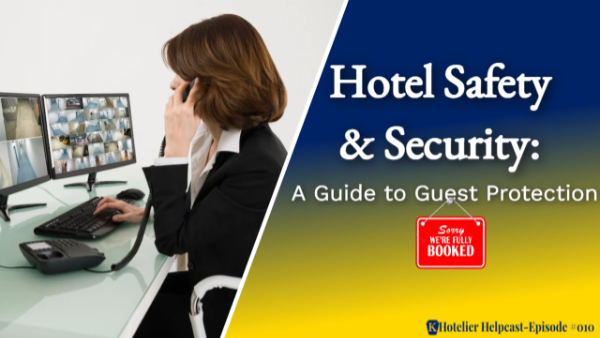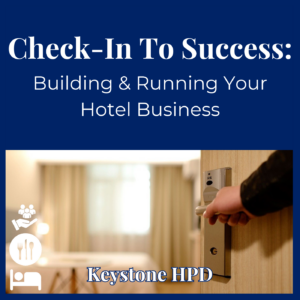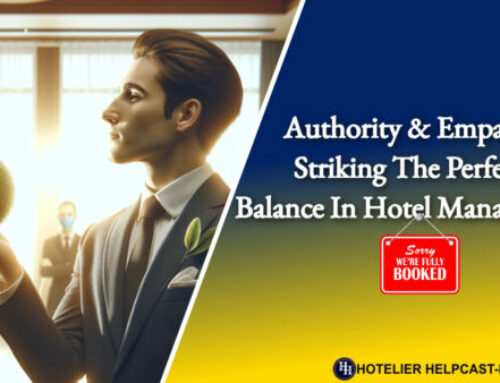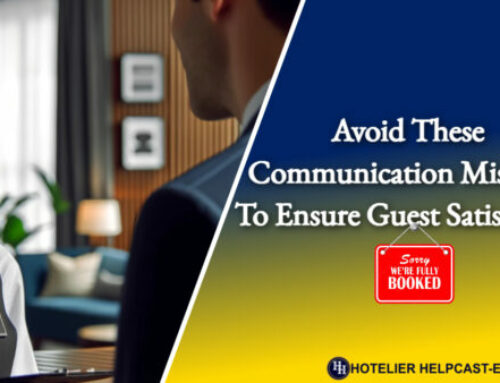The importance of hotel safety and security is paramount for any property’s success.
Today, I look at different aspects of hotel safety and security, outlining measures and protocols that are essential for safeguarding guests.
Why is hotel safety and security important?
It is crucial for several reasons.
Hotel safety and security are essential for safeguarding guests, employees, assets, and the overall reputation of the establishment. A commitment to providing a secure environment enhances the guest experience, encourages loyalty, and contributes to the long-term success of the hotel.
From the latest technological advancements to traditional security measures, let’s explore how hotels can create a secure environment that not only protects but also enhances the guest experience.
Understanding the Importance of Hotel Security
Hotel security is a critical aspect of the hospitality industry. It involves protecting guests, staff, and property from potential threats such as theft, violence, and natural disasters. A secure hotel environment fosters trust and confidence among guests, encouraging repeat visits and positive reviews. Moreover, effective security measures can prevent significant financial losses and damage to the hotel’s reputation.
Guest Confidence:
Ensuring guests feel safe is crucial for positive experiences and reviews.
.
Prevention of Loss:
Effective security measures can deter theft and other criminal activities.
.
Compliance with Regulations:
Adhering to safety and security regulations is essential for legal compliance and avoiding fines.
.
Implementing Technological Advances in Security
The integration of technology into hotel security systems has revolutionized how hotels protect their premises and guests. Advanced technologies such as surveillance cameras, key card access systems, and cybersecurity measures for protecting online transactions and personal data are now standard in many hotels.
Surveillance Cameras:
These provide real-time monitoring of hotel premises.
.
Key Card Access Systems:
They restrict access to guest rooms and other secure areas.
.
Cybersecurity Measures:
Protecting guests’ personal and financial data from online threats.
.
Training Staff for Effective Security Management
Staff training is a cornerstone of effective hotel security. Employees should be trained to identify and respond to security threats, understand evacuation procedures, and assist with emergencies. Regular training sessions can keep the staff updated on the latest security protocols and technologies.
Emergency Response Training:
Equipping staff with the skills to handle emergencies.
.
Regular Security Drills:
Conducting drills to ensure preparedness for various scenarios.
.
Guest Interaction Training:
Teaching staff to assist and inform guests about safety measures.
.
Enhancing Physical Security Measures
Physical security measures such as locks, alarms, and well-lit premises are fundamental to hotel security. Ensuring that these measures are in place and functioning correctly is vital for deterring unauthorized access and providing a safe environment for guests.
High-Quality Locks:
Installing robust locks on doors and windows.
.
Alarm Systems:
Implementing alarms for detecting unauthorized entry or emergencies.
.
Adequate Lighting:
Ensuring well-lit corridors, parking lots, and public areas.
.
Developing Comprehensive Emergency Response Plans
plans are essential for handling unforeseen events like natural disasters, fires, or security breaches. These plans should include evacuation procedures, emergency contact information, and strategies for communication during a crisis.
Evacuation Procedures:
Clear guidelines for safely evacuating guests and staff.
.
Emergency Contacts:
Maintaining a list of contacts for police, fire services, and medical assistance.
.
Crisis Communication:
Strategies for communicating with guests and authorities during emergencies.
.
Now, if these ideas have you hungry for more hotel hacks, I’ve got a treat for you. Download our free PDF: “Unlocking Hospitality Success: 25 Must-Know Insights for Independent Hotel Owners”. It’s like the golden ticket but for hotel owners. So go on, snag it and elevate your game! You can find a link in the show notes.
.
Do you have a safety and security policy in place for your hotel?
Let me know.
.
.
In conclusion
Hotel safety and security are vital components of the hospitality industry. By implementing advanced technological measures, training staff effectively, enhancing physical security, and developing comprehensive emergency response plans, hotels can ensure a safe and secure environment for their guests. As the industry evolves, so must the approaches to security, always aiming to provide peace of mind to those who stay within these establishments.
.
In our next episode, I will talk about hotel reservation and management systems.
.
⇒ TO READ OR LISTEN TO THIS EPISODE ON KEYSTONE HOSPITALITY PROPERTY DEVELOPMENT:
https://keystonehpd.com/hotel-safety-security-a-guide-to-guest-protection-010
.
Serious about taking your business to the next level? Sign up for the “Check-In to Success-Building and Running Your Hotel Business” course.
.
Grab your copy of the “Unlocking Hospitality Success: 25 Must-Know Insights for Independent Hotel Owners” PDF.
https://keystonehpd.com/the-hotelier-helpcast-pdf/
.
Hospitality Property School Group
Learn the benefits—https://member.keystonehpd.com
.
Join one of our groups
https://www.facebook.com/groups/thehotelierhelpcast
Say hi on social
Facebook: https://www.facebook.com/KeystoneHPD
Twitter: https://twitter.com/KeystoneHPD
LinkedIn: https://www.linkedin.com/company/keystone-hospitality-development
.
Listen to The Hospitality Property School PODCAST here
https://keystonehpd.com/thehotelierhelpcastpodcast
.
YouTube
https://www.youtube.com/@TheHotelierHelpcast
.
A Division of Keystone Hospitality Property Development








